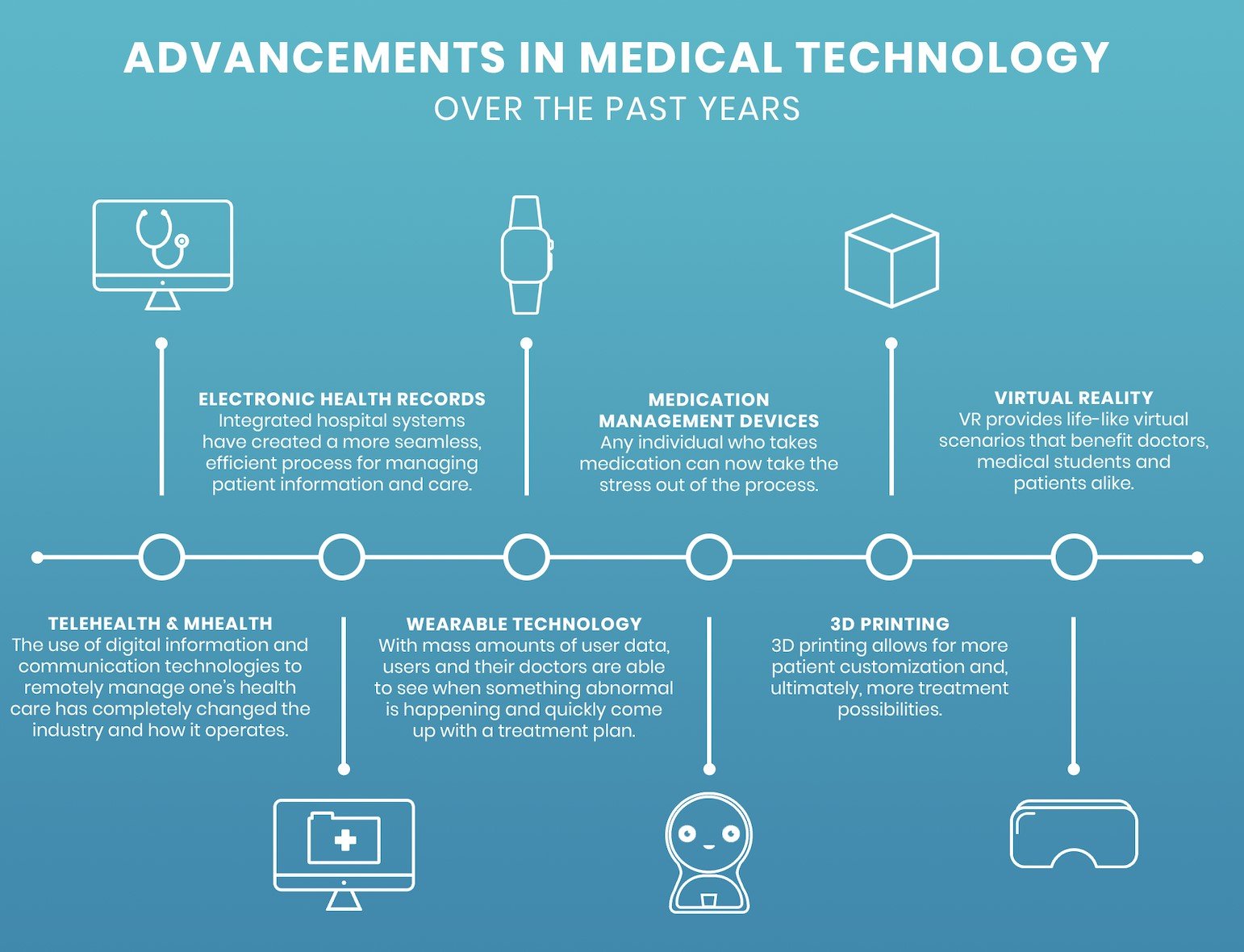The 21st century is shaping up to be the century of medical technology. Advancements – across all facets of the healthcare industry – are being developed all around us, and they’re having a major impact on both the medical community and patients within. So, in the interest of reflection, we’ve pulled together the top medical technologies that have brought us to where we are today.
Telehealth and Mobile Health (mHealth)
We live in a technologically driven world, so it’s no surprise that telehealth, the use of digital information and communication technologies in healthcare, and mobile health, also known as mHealth, made our list. While a category as opposed to one specific piece of technology, the use of computers, mobile devices, health portals, remote monitoring devices and more to remotely manage one’s health care has completely changed the industry and how it operates.
As part of the larger telehealth movement, mHealth cuts the cords from healthcare devices and allows both doctors and patients to manage healthcare processes without an office visit. This means that doctors can easily access and send information to patients, and then patients can load their health devices and results directly into their smartphone.
Electronic Health Records (EHRs)
Integrating hospital systems – from pharmacy to documentation – into one comprehensive platform has created a more seamless, efficient process for managing patient information and care. EHRs have completely streamlined how hospitals operate and leave more time for physicians to focus on what’s most important: patient care.
Wearable Technology for Healthcare
Ever since Bluetooth technology was introduced, wearable devices have been on the rise. Users are able to track everything from steps and fitness goals to heart rate and sleep quality. But wearables are also being used to combat illness and improve overall health. By collecting data throughout the day, users and their doctors are able to see when something abnormal is happening – and quickly come up with a treatment plan.
Medication Management Devices
Medication management devices are medical technology available to the masses. Now, any individual who takes medication can take the stress out of the process. Not only are these automatic pill dispensers, these devices will sort pills, set reminders to take them, and even alert caregivers when doses go untouched. Some of the more advanced devices serve as a home healthcare assistant and even come with a companion app to keep user information in one place.
3D Printing in Healthcare
3D printers are far more than just a cool, novel piece of technology. When it comes to their healthcare applications, the possibilities seem endless. They can be used to print things like implants and joints for surgical procedures, prosthetics, skin, and even pills. 3D printing allows for more patient customization and, ultimately, more treatment possibilities.
Virtual Reality (VR) for Healthcare
Virtual reality isn’t a new technology, but combined with other medical and technological advancements, it’s had a significant impact on the healthcare industry. Medical students can get up close and personal to real life medical scenarios and practice procedures using a visual representation of the human anatomy. VR also gives patients a look inside their own surgery before it happens – giving them peace of mind and allowing them to mentally prepare.
These are only a fraction of the incredible advancements we’ve seen so far in the 21st century, and we have no doubt that we’re in store for many more.

Tags:
StoriesMarch 30, 2022
Comments